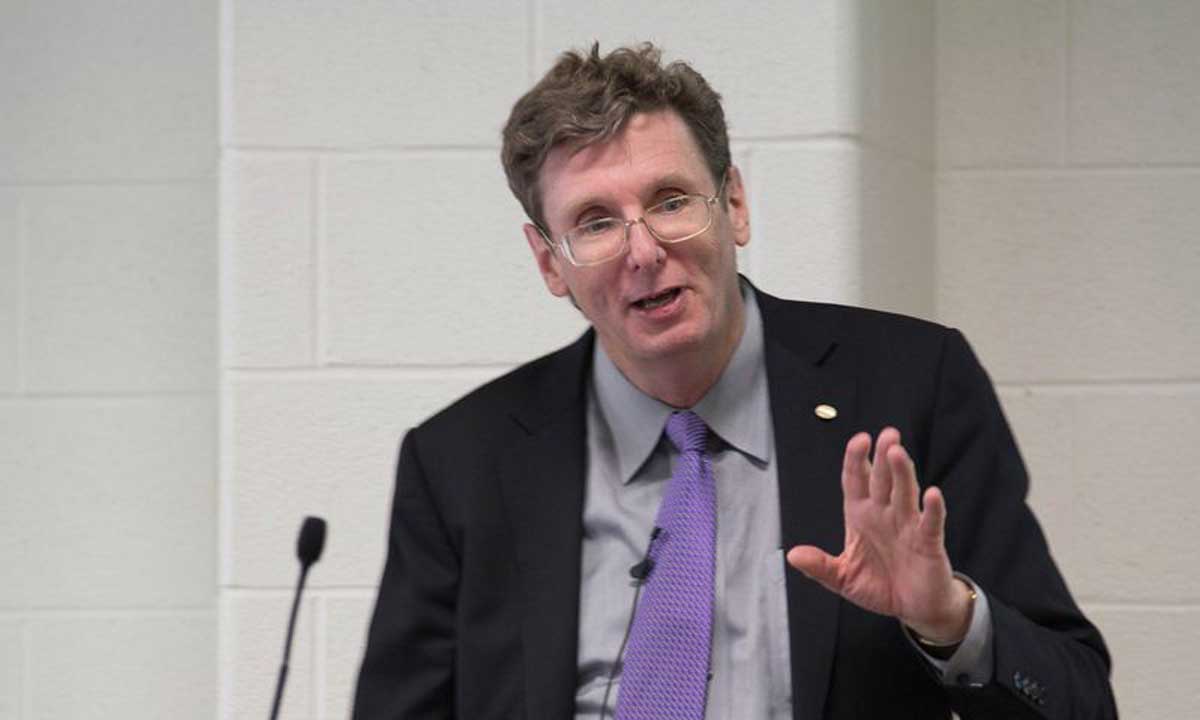SRI chief: Opportunities to spark American innovation abound
News
The state of innovation in America is bleak but the future is paved with vast opportunities, SRI International President Curtis R. Carlson said Thursday in a talk at the Festival Conference and Student Center.
Carlson's talk, "Creating Abundance in the Global Innovation Economy" was one of the day's inaugural events and was attended by JMU faculty, staff and students as well as representatives of area governments, neighboring colleges and the local community. JMU was one of the main reasons SRI chose in 2006 to create its Center for Advanced Drug Research in Rockingham County. The university and SRI, one of the nation's leading innovation organizations with more than 1,000 patents touching virtually every sector of the American economy, have had a close working relationship ever since.
Carlson noted many stumbling blocks that have sent the U.S. tumbling from its spot as the most competitive country in 2008 to seventh in 2012. Among them a broken education system, a tax system that discourages business creation and restrictive immigration policies that prohibit highly talented people from entering the country. "We're falling behind. We're not keeping up," he said.
Discussing education, Carlson said spending has doubled since 1970 but there has been no improvement in outcomes. He lamented low graduation rates, particularly in the country's urban centers, and an environment not conducive to effective learning in today's technological world. "If the enemy did this to our children, we would go to war with them. And we're doing it to ourselves," he said.
Students should be learning value creation and innovation through experiential and project-based paradigms, he said. Once students learn innovation skills, they can set themselves apart. "That's how valuable these skills are. In a world that's changing rapidly, you don't want to be dependent on some big company for your future," he said.
Despite the pitfalls, Carlson said opportunities to spark American innovation abound. "New graduates are really lucky," he said, "because every field you go into is ready now for transformation after transformation and new technological opportunity."
Citing the growth of the Internet and the wave of advancements in smart phones, tablet computers and other technological devices, Carlson said computing power and capability is still in an early stage. He predicted computers could have the processing power of human brains in 30 to 40 years. He also said the ability to communicate and collaborate, even among people of different nationalities who speak different languages, is improving in leaps and bounds. "There are billions of jobs that can be created in the world we're in," he said.
But innovation won't happen overnight, or by luck. SRI's culture is steeped in a model for innovation that has to be learned, Carlson said. He added that, even at universities, there is confusion between inputs and skills and real innovation. Innovation, he said, is creating products that meet important customer or market needs.
Among new innovations at SRI, Carlson said, is a computer-based program to teach math five different ways. Results have been promising, he said, adding that the project is scalable, low cost and has potential to transform education.
# # #

